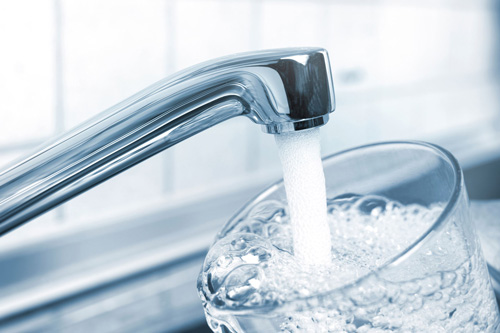Water is the elixir of life, an essential resource that sustains all living organisms on our planet. Whether it flows from your tap or is sourced from your very own well, the origin of your water can have a profound impact on its quality, safety, and even your overall health. In this blog post, we’ll delve deep into the ongoing debate between well water and municipal water, shedding light on their inherent differences, benefits, potential drawbacks, and equipping you with the knowledge needed to make an informed decision based on your unique circumstances.
Well Water
Well water, a fundamental resource deeply intertwined with human civilization, operates through a fascinating geological and hydrological process. The functioning of well water hinges on tapping into subterranean aquifers, which are water-saturated rock formations beneath the Earth’s surface. The journey of well water begins with well drilling, a process that involves specialized equipment to bore through layers of soil, rock, and sediment until reaching the desired depth. The well casing, usually constructed from materials like steel or PVC, is then inserted into the drilled hole to maintain the well’s structural integrity and protect it from contaminants.
The process of replenishing aquifers involves the natural cycle of precipitation and runoff. Rainwater infiltrates the ground, percolating through layers of rock and sediment to reach the aquifers. Over time, these underground reservoirs accumulate water, forming a reliable and sustainable source of freshwater. Consequently, well water has served as a lifeline for generations, catering to domestic needs, agricultural irrigation, and even industrial applications in regions where access to traditional water supplies might be limited.
Ensuring the safety and quality of well water is paramount. Regular testing for contaminants such as bacteria, chemicals, and heavy metals is essential to guarantee the health and well-being of those who rely on this source. Maintenance practices include inspecting and repairing well components, safeguarding against possible leaks, and preserving the integrity of the well casing to prevent cross-contamination.

Municipal Water
Municipal water, often referred to as tap water or city water, is a fundamental component of modern urban infrastructure that holds significant importance for the health, well-being, and development of communities. As an essential public resource, it serves as the primary source of clean, potable water for residents, businesses, and institutions within urban and suburban areas. Managed and supplied by local government authorities or municipal bodies, these systems are responsible for treating, distributing, and maintaining the water supply to ensure its safety and reliability.
The process of delivering municipal water involves a series of intricate steps that span from sourcing to consumption. Initially, water is collected from natural sources such as rivers, lakes, reservoirs, and groundwater aquifers. However, this raw water often contains impurities, contaminants, and pathogens that can be harmful to human health. To render it safe for consumption, municipal water undergoes a thorough treatment process. This treatment generally includes coagulation and flocculation, during which chemicals are added to clump together impurities for easier removal. Subsequent steps like sedimentation, filtration, and disinfection further eliminate particles, bacteria, viruses, and other unwanted substances. The aim is to meet stringent regulatory standards set by health agencies to ensure the water’s purity and safety.
Once treated, the water is distributed through an extensive network of pipes and infrastructure that crisscrosses the urban landscape. This distribution system, comprising pumps, valves, pipes, and storage reservoirs, ensures a steady flow of water to homes, businesses, schools, and other establishments. Consumers can access this water by simply turning on a tap, and it’s readily available for a multitude of purposes including drinking, cooking, bathing, cleaning, irrigation, and industrial use.
Empowered Decision-Making
When confronted with the decision between well water and municipal water, it’s imperative to take into account factors such as your geographical location, lifestyle, and individual preferences:
- Location: The availability of options can be heavily influenced by your location. Rural areas might lack access to municipal water, making wells the more pragmatic choice. Conversely, urban dwellers are more likely to rely on the convenience of municipal water systems.
- Water Quality: Research the water quality in your specific area. If you opt for well water, periodic testing is imperative to assess its quality and ensure its safety for consumption.
- Maintenance Obligations: Wells necessitate ongoing maintenance and regular testing, while those who opt for municipal water enjoy the convenience of a professionally managed and maintained system.
- Taste Preferences: Take into consideration your taste preferences and whether you are comfortable with any additives used during municipal water treatment.
Well and Municipal Water Present Unique Benefits
In the ongoing rivalry between well water and municipal water, there’s no universally applicable solution. Each water source has its own set of strengths and weaknesses, and the choice you make should be grounded in a thoughtful evaluation of your location, lifestyle, and preferences. Whether you are captivated by the innate allure of well water or enticed by the consistent quality of municipal water, remaining well-informed is the linchpin to ensuring that your hydration needs are met in a safe, sustainable, and delectable manner. Remember, water is not just a basic necessity; it’s a lifeline that deserves careful consideration. To learn more about your water, or to schedule a water test to ensure its quality, give Atlantic Blue Water Services a call today at 410-840-2583.
